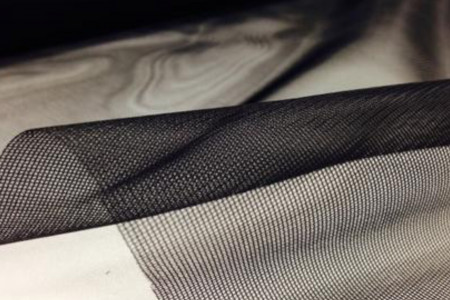As summer approaches in the Scottish Highlands, tourists and locals face a pesky truth - the infamous Highland midge (Culicoides impunctatus). This tiny blood-sucker, with a wingspan of less than 2mm, is responsible for small bites on the skin which can cause swelling and itching lasting several days.
As summer approaches in the Scottish Highlands, tourists and locals face a pesky truth – the infamous Highland midge (Culicoides impunctatus).
This tiny blood-sucker, with a wingspan of less than 2mm, is responsible for small bites on the skin which can cause swelling and itching lasting several days.
Midges are found in other parts of Britain, for example north Wales and the Lake District and in other regions of Europe, but it is widely considered that the Scottish sub-species is the most ferocious. They are particularly prolific in northwest Scotland where an abundance of wet and uncultivated land makes the perfect breeding ground.
The midge season begins in early June and lasts through to around August, although they can still be a problem until the end of October, depending on the onslaught of frost. The numbers of midges varies from year to year depending on the winter weather, spring rainfall and temperature.
Last year was an exceptionally cold winter for Scotland, which scientists predicted would reduce the midge population, however, it was found that by the following summer numbers were actually higher due to a reduction in their natural predators. Climate change is in fact extending the midge season and increasing their geographic range.
Their effect also varies with the time of day – they tend to be more active in the early morning and just before sunset, less windy conditions and in humidity above 60%. By considering what conditions midges favour, steps can be taken to avoid them. They like cool, indirect light, so dawn and dusk are the most likely times that they will be active.
They often live near water so dry conditions are associated with a reduced population. Similarly, because they tend to like still air, you are more likely to be bitten in sheltered areas, woodland and forest than exposed hills and highland or where it is breezier. Midges cannot keep up with a normal walking pace so country walks or active outdoor pursuits can generally be completed bite-free.
Midges will enter the house because of these factors as it provides the perfect sheltered, still-air environment for biting. They are most attracted indoors when the lights are on, so it is important to keep windows and doors closed in the evenings. One alternative to shutting windows and doors completely is investing in midge screening. In problem areas, such as the Highlands and islands of Scotland, this offers a welcome respite from the worry of midges in the home.
Midge screens also offer B&B owners and hoteliers the opportunity to help keep their guests happy by giving them a restful and bite-free night’s sleep.
Midge screening can be fitted to all doors and windows – screens consist of a woven fibreglass mesh fitted into a lightweight aluminium frame. Practice has shown that in order to be effective a 30 x 20 mesh should be used to keep out these insects. This means that in one square inch there will be 30 holes one way and 20 the other (making each hole about 0.9mm x 0.5 mm). Some suppliers offer a 20 x 20 mesh but customer experience questions about the efficiency of this size. A 30 x 20 mesh, on the other hand, offers complete protection against midges in the home and still allows free-flowing air at 47%.

